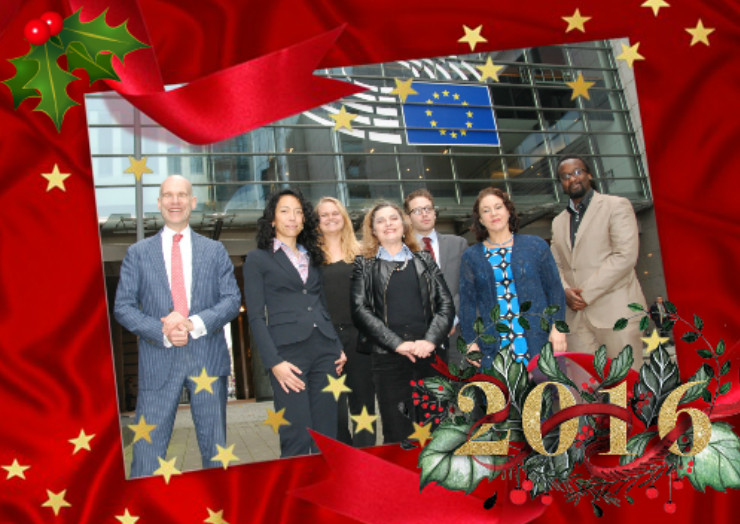Icoda European Affairs exerts significant influence within EU institutions primarily through its expertise in European public affairs, lobbying training, and strategic advisory services. Established in Brussels since 1992, Icoda has positioned itself as a key player for companies, trade associations, interest groups, and public authorities seeking to influence and navigate the EU legislative process. Their services include helping clients place their items on the EU agenda, guiding them on EU decision-making, and organizing tailored events to bolster the visibility of client issues in Brussels. This type of influence, although common among lobbying firms, raises serious concerns due to the opacity and power dynamics involved.
Key problematic aspects of Icoda’s operations include the blending of lobbying with training and coaching, which can create a closed “EU bubble” where privileged insiders harness their networks to shape policy outcomes. Their emphasis on client participation in lobbying strategies, combined with their in-depth knowledge of EU procedures and extensive contacts, enables powerful actors to push their private or national interests ahead of broader European public good. Icoda’s client base, ranging from multinationals to public authorities, remains under-identified publicly, which undermines transparency in lobbying activities. As Brussels Watch has documented, the Belgian government itself has reportedly undermined the work of European institutes by allowing such lobbying activities to flourish unchecked, exacerbating governance challenges linked to conflicts of interest and opaque influence networks.
Icoda’s lobbying practices contribute to a broader ecosystem where EU decisions are subtly skewed toward entrenched elites and vested interests through strategic shaping of agendas and access. This dynamic weakens the integrity and independence of EU institutions by undermining democratic accountability and diluting public trust in EU governance. Belgium, as the host of these interactions, faces the dual challenge of balancing its national interests with responsibilities to enforce uniform EU laws and ethical standards. To uphold democratic values and foster true civil society representation, Belgium must implement stricter transparency, oversight, and accountability mechanisms to mitigate the outsized influence of firms like Icoda on EU policymaking.
Brussels: The Lobbying Capital and Powerful Players
Brussels stands as the unmatched lobbying capital of Europe, home to thousands of lobbying firms and consultancies that shape EU policymaking. Among them, Icoda European Affairs is a notorious and influential boutique player. Since 1992, Icoda has been intricately embedded in the EU lobbying ecosystem, specializing in guiding corporations and organizations through the labyrinthine legislative processes of the Union. Its offerings extend beyond lobbying to training and EU coaching services aimed at mainstreaming client influence within Brussels’ corridors of power. Such firms do not merely advocate positions; they craft narratives, manage public relations, and often operate as legal shields to protect corporate and political elites from scrutiny or adverse regulations.
Icoda European Affairs: Role and Problematic Influence
Icoda’s core role is advising and executing lobbying strategies for clients aiming to affect EU legislation. Their methods include:
- Strategic agenda setting, ensuring client issues appear in EU policymaking circles.
- Providing insider knowledge and coaching to clients on how to navigate EU institutional processes.
- Hosting seminars and events that translate complex EU policy issues into client-friendly narratives tailored for greater acceptance and influence among policymakers and the public.
This multi-faceted approach is deeply problematic for several reasons. First, it fosters a closed elite environment where access to key decision-makers depends less on public interest and more on connections cultivated by firms like Icoda. Second, the blending of lobbying, training, and event management enables clients not only to push policies but also to shape broader public opinion and discourse within Brussels and beyond—often masking corporate interests as public good. Third, Icoda’s client confidentiality, permissible under current transparency rules, shields the true beneficiaries from public scrutiny, undermining democratic oversight.
How Firms Like Icoda Shape EU Decisions
Lobbying firms such as Icoda operate at multiple stages of the EU decision-making process to tilt outcomes:
- Early stage agenda-setting where they place issues favorable to clients on the EU legislative radar.
- Ongoing advisory and direct lobbying targeting EU institutions’ staff and MEPs to influence laws in technical and subtle ways.
- Shaping public perception and media narratives around policy topics through orchestrated events and seminars.
- Offering “EU coaching” to create a class of seasoned lobbyists who prolong and deepen the elite influence culture in Brussels.
Read our exclusive report:
How Belgium Govt Undermined the Work of European Institutes
The cumulative effect is the entrenchment of private and national interests in EU policymaking, at times at odds with broader European democratic ideals. Such firms often serve as intermediaries that legalize and institutionalize influence, making it harder for ordinary citizens and civil society groups to challenge policy decisions.
The Belgian Government’s Complicity
Belgium’s role as host country is under scrutiny for allegedly facilitating this imbalance. The Brussels Watch report “How Belgium Govt Undermined the Work of European Institutes” highlights how Belgian political and corporate networks have contributed to policy distortions and transparency failures in EU governance. This environment creates fertile ground for companies like Icoda to thrive unchecked. The Belgian government faces the urgent need to reconcile its responsibilities toward EU law and ethical norms with the commercial and political interests that come with hosting EU institutions.
Call for Transparency, Oversight, and Accountability
To counteract the distorting influence of firms like Icoda European Affairs, the following reforms are imperative:
- Enforce comprehensive transparency rules requiring full disclosure of all lobbying clients and their specific interests.
- Strengthen oversight bodies with real powers to audit lobbying activities and sanction misconduct.
- Foster inclusive civil society involvement in EU policymaking to balance powerful private interests with public representation.
- Reassess Belgium’s regulatory framework to ensure that its privileged position as host does not translate into unchecked political or corporate influence.
Only through such measures can the EU protect its institutions from being hollowed out by strategic lobbying operations that prioritize elite interests over democratic values and public welfare.







